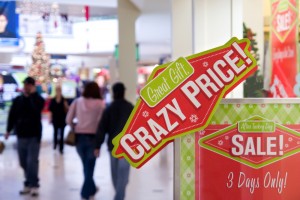If you work for a retail company, I think it’s safe to say that you should always be keen to bring in more customers and encourage shoppers to spend more money, regardless of the size of your organisation or your product range. For this to happen, though, you’ll need a comprehensive marketing strategy.
However, it would be a mistake to think that millions of pounds have to be spent on glitzy advertising campaigns that feature celebrities to promote your company. Indeed, there are plenty of cost-effective ways for retailers to boost brand awareness among new and existing customers alike.

Hand Out Promotional Bags
Bags are an essential item for all retailers, not only for their basic function of being a way for customers to transport their purchases, but also in the promotional opportunities that they present. Bags can be customised to feature a range of marketing information, from your company name and logo to a call to action and your Twitter handle, so they will effectively become moving billboards for your brand from the minute shoppers pick them up and take them out of your store.
Although you can choose from a wide range of promotional bags, most retailers select branded cotton shopping bags. These bags are stronger than their plastic counterparts, meaning customers can use them on multiple occasions without fear of them snapping and, as such, will provide greater long-term brand exposure.
As cotton bags are much kinder to the environment than plastic carriers, they highlight your organisation’s green credentials and help customers to reduce their own carbon footprint.
Run product-related seminars and workshops
I think it’s also a good idea for retailers to run workshops that are related to the products you sell. Doing so is a great way to showcase your expertise to your target audience and will give customers another reason to interact with your brand.
Food retailers, for example, might wish to put on cooking demonstrations and distribute recipes to customers. Not only will this help people come up with fantastic meals at home, but it could also encourage them to pick up certain ingredients when they browse the aisles. Sainsbury’s is one supermarket chain already doing this, with its Live Well For Less initiative offering meal planning tips for shoppers keen to stick to a budget.
Stores that sell musical instruments or electrical appliances, on the other hand, could consider offering workshops that help their customers make full use of their products. This may include offering advice on how to clean their appliances or how to upgrade software.
Distribute Promotional Products
I know I’ve already looked at promotional bags, but there are plenty of other cost-effective products retailers can distribute to their target audience. Trolley coin keyrings might be popular with supermarkets and grocers – as customers won’t have to scramble around for a pound coin when they wish to use a trolley. Fashion retailers could opt for branded sunglasses or shoehorns to give as gifts to customers who spend a certain amount of money in-store.
No matter what promotional items you distribute among your target audience, I suggest you make sure marketing information such as your logo and contact details are clearly printed on your promotional products so your brand resonates firmly with recipients.
As you can see, there are many ways retailers can promote themselves. Whether you’re using printed shopping bags, running email marketing campaigns or distributing free gifts, share your marketing experiences by leaving a comment below.

